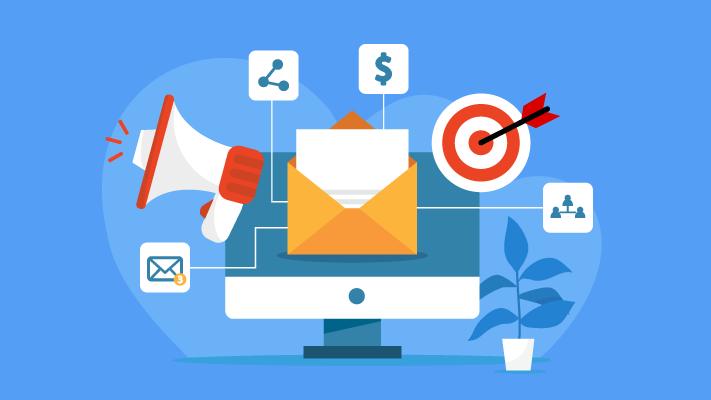1. Define Clear Objectives
Set Specific Goals: Identify the event's primary objective, such as disseminating knowledge through a symposium, nurturing connections at an alumni reunion, or imparting skills through a workshop. Clear goals shape the entire planning process.
Determine Target Audience: Understand who the event is for-students, faculty, alumni, or external partners. Tailoring the event to their needs ensures maximum engagement.
Establish Key Performance Indicators (KPIs): Define success metrics like attendee numbers, engagement levels, or satisfaction scores to measure effectiveness.
Align with Institutional Mission: Ensure the event aligns with your institution's mission and values, such as academic excellence, community engagement, or innovation.
Set Clear Deliverables: Specify key deliverables such as presentations, networking sessions, or workshops to aid resource allocation and planning.
Identify Long-Term Goals: Consider long-term objectives like establishing a recurring event, building a community, or influencing future research to provide a broader perspective.

2. Plan and Organize Meticulously
Create a Detailed Timeline: Develop a comprehensive timeline with key milestones, deadlines, and responsible teams. Cover activities from venue booking and speaker engagement to marketing campaigns and registration deadlines.
Budget Management: Establish a realistic budget that includes all expenses, such as venue, catering, technology, and promotional materials. Use Eventleaf's cost-effective solutions and educational discounts to maximize your budget.
Risk Management Plan: Identify potential risks and create contingency plans to address them. This can include anything from technical failures to low attendee turnout.
Resource Allocation: Ensure you have the necessary resources, including staff, volunteers, and equipment, to execute the event smoothly.
Communication Plan: Develop a clear communication strategy that keeps all stakeholders informed and aligned. Eventleaf's email and app notifications help you keep everybody in the information loop.
Vendor Coordination: Work closely with all vendors to ensure they understand your requirements and timelines. Good vendor relationships can be crucial for the event's success.
Feedback Mechanisms: Establish ways to gather feedback during and after the event to make real-time adjustments and inform future planning. Eventleaf offers live polls and post event surveys to simplify

3. Engage Stakeholders
Involve Faculty and Staff: Engage faculty members and administrative staff early in the planning process. Their input provides valuable insights and ensures the event meets academic standards and institutional expectations.
Student Participation: Encourage student participation in both planning and attending events. Student volunteers can assist with logistics, marketing, and day-of-event tasks, gaining invaluable experience in the process.
Collaborate with Departments: Partner with various departments to broaden the event's scope and reach. Collaboration can lead to resource sharing and innovative ideas.
Establish Advisory Committee: Form an advisory committee comprising key stakeholders to provide guidance and oversight. Their expertise can enhance the event's quality and relevance.
Engage Alumni Network: Involve alumni in event planning or as speakers. Their real-world experience can add value and attract more attendees.
Community Involvement: Engage local community leaders and organizations for support and sponsorship. This can enhance the event's impact and outreach.
Sponsor and Partner Relations: Build relationships with potential sponsors and partners who can provide financial or in-kind support, increasing the event's scope and quality.

4. Leverage Technology
Use Advanced Event Management Software: Utilize platforms like Eventleaf to streamline the entire event management process. From online registration and ticketing to real-time engagement tools, Eventleaf makes it easier to manage complex events with efficiency.
Hybrid and Virtual Options: Incorporate hybrid and virtual options to increase accessibility and reach a broader audience. Eventleaf's robust support for virtual events, including live streaming and interactive features, ensures a seamless and engaging experience.
Mobile App Integration: Use mobile apps to provide attendees with easy access to schedules, updates, and interactive features. Eventleaf's mobile apps offer convenience and enhance engagement.
Automated Communication: Leverage automated email and SMS reminders to keep attendees informed about important updates, deadlines, and changes.
Data Analytics and Reporting: Utilize advanced analytics and reporting tools to gain insights into attendee behavior, engagement levels, and event success.
Interactive Features: Implement interactive features like live Q&A sessions, polls, and surveys to increase attendee participation and gather real-time feedback.
Security and Compliance: Ensure robust data security and compliance with industry standards to protect sensitive information and maintain trust.

5. Focus on Marketing and Promotion
Dedicated Event Website: Create a dedicated event website that serves as a central hub for all event-related information. Use it to register attendees, provide updates, and offer detailed agendas, speaker bios, and other essential resources.
Multi-Channel Approach: Deploy a multi-channel marketing strategy that includes email campaigns, social media, institutional newsletters, and campus posters. Tailor your message to different audiences to maximize engagement.
Create Compelling Content: Develop compelling content that highlights the value of your event. Use testimonials, speaker bios, and session previews to generate interest and excitement.
Influencer Partnerships: Collaborate with influential faculty, alumni, and student leaders to promote the event through their networks and increase reach.
Targeted Advertising: Utilize targeted advertising on platforms like Google, Facebook, Instagram, and LinkedIn to reach specific demographics and increase registration rates.
Early Bird Discounts: Offer early bird discounts and special promotions to encourage early registrations and create a sense of urgency.
Referral Programs: Implement referral programs where attendees can invite friends and colleagues for a discount, thereby increasing your event's reach.

6. Ensure Seamless Execution
On-the-Day Coordination: Assign roles and responsibilities to ensure smooth execution on the day of the event. Utilize Eventleaf's tools for real-time updates, attendee tracking, and communication to handle any last-minute changes.
Check-In Process: Implement a streamlined check-in process with Eventleaf's mobile check-in and QR code scanning to reduce wait times and improve attendee experience.
Technical Support: To offer an uninterrupted experience, make sure you have technical support on standby to address any AV issues or software glitches promptly.
Venue Setup: Coordinate with the venue for proper setup, including seating arrangements, signage, and accessibility features. Eventleaf can help manage logistics and ensure everything is in place.
Live Streaming Management: If you're hosting a hybrid or virtual event, Eventleaf offers live streaming through popular apps such as GoToMeeting, GoToTraining, GoToWebinar, WebEx, and Zoom.
Real-Time Communication: Use Eventleaf's messaging and notification features to keep staff, speakers, and attendees informed about schedules, session changes, and important announcements.
Crowd Management: Utilize Eventleaf's attendee tracking and capacity management features to monitor attendee flow and maintain safety and comfort in high-traffic areas.
Emergency Protocols: Ensure that all staff are familiar with emergency protocols and communication plans to handle unforeseen circumstances effectively.
Networking Facilitation: Enhance attendee interactions by leveraging Eventleaf's Guide App that allows participants to connect, schedule meetings, and participate in group discussions.
Capture Leads: If you're hosting an exhibition, job fair or conference where you or your sponsors or exhibitors need to collect leads for relationship building and marketing, Eventleaf's Leads App does the job. Just scan attendee barcodes to capture their contact info and follow up with them after the event.
Related Post: Event Planning Checklist Used By Top Event Planners

7. Post-Event Follow-Up
Gather Feedback: Collect feedback from attendees, speakers, and stakeholders to assess what went well and identify areas for improvement. Use Eventleaf's survey tools to simplify the process and gather actionable insights.
Analyze Data: Analyze event data to measure success against your objectives. Attendance rates, participant engagement, and feedback scores provide valuable metrics for future planning.
Share Outcomes: Share the outcomes and highlights of your event through institutional channels. Recognize contributors, celebrate successes, and demonstrate the impact of the event on your academic community.
Thank You Notes: Send personalized thank you notes to attendees, speakers, sponsors, and volunteers to appreciate their participation and support, fostering positive relationships for future events.
Post-Event Content: Publish post-event content, such as video recordings, presentations, and write-ups, on your event website or institutional portals. Eventleaf can help manage and distribute these materials.
Certificates of Attendance: Use Eventleaf to automate the generation and distribution of certificates of attendance or participation to acknowledge attendees and add value.
Follow-Up Meetings: Schedule follow-up meetings with key stakeholders to discuss the outcomes, gather additional insights, and begin planning for future improvements.
Debrief Sessions: Conduct debrief sessions with your event team to discuss what worked, what didn't, and how processes can be refined for future events.
Maintain Engagement: Keep the momentum going by sending periodic updates, newsletters, or invitations to upcoming events, maintaining engagement and interest within your community.
Evaluate ROI: Assess the return on investment (ROI) by comparing the costs and benefits of the event, utilizing Eventleaf's analytics to quantify success.
Learnings Documentation: Document lessons learned and best practices in a detailed report to serve as a reference for future event planning teams.

8. Start Planning Your Next Event
Abstract Submission: Utilize Eventleaf's Abstract feature to streamline the process of accepting submissions from potential speakers or presenters. This ensures all relevant details are captured accurately and efficiently.
Review and Selection: The Abstract feature allows for easy review and selection of submissions by your event committee. Use it to organize and sort abstracts based on criteria, making the selection process transparent and straightforward.
Communication Management: Keep authors and presenters informed about the status of their submissions with automated notifications and updates, facilitated through Eventleaf.
Content Organization: Use the collected abstracts to seamlessly build your event's agenda, arranging sessions and presentations in a structured manner.
Integration with Event Platforms: Integrate the accepted abstracts into your event website and promotional materials, giving attendees a sneak peek of the content to expect.
